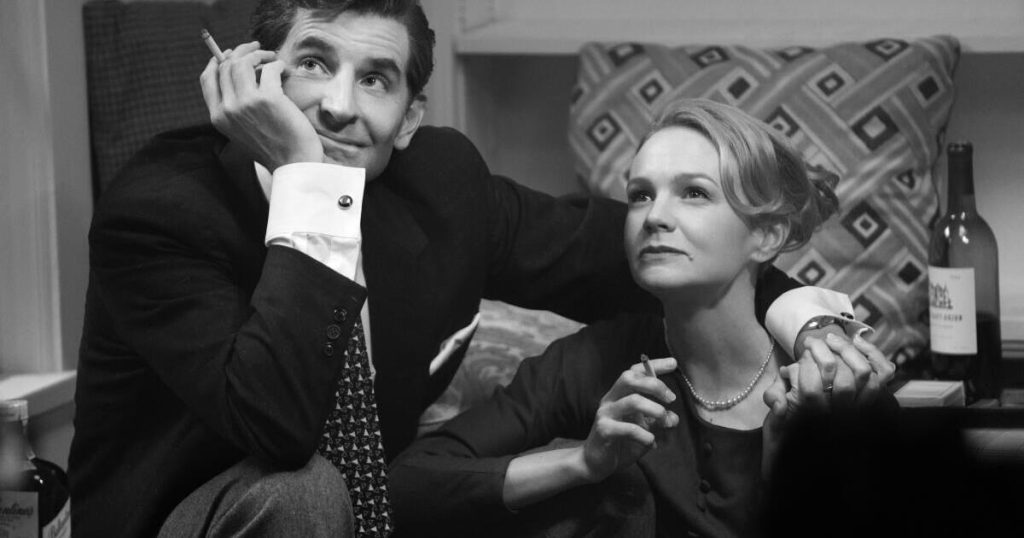The film “Maestro,” starring Bradley Cooper as legendary conductor Leonard Bernstein and Carey Mulligan as his wife, actress Felicia Montealegre, is all kinds of wonderful.
The phrase “as his wife” is used a lot in movie reviews, and it often indicates a lesser role, either as nagging adversary or unrelentingly supportive muse.
The role of Mulligan, whose previous triumphs include “An Education” and “Promising Young Woman,” is neither in this film. She receives top billing, unusual since Bernstein is the better-known celebrity, and because Cooper co-wrote and directed the film.
But “Maestro” defies expectations a lot.
Listed among the executive producers are both Martin Scorsese and Steven Spielberg. In other words, it smells of “prestige” before the story even begins. If one anticipates a “good for you,” by-the-numbers biopic … well, one will be surprised.
“Maestro” is less a biography of Bernstein than it is the story of a marriage. Two talented, complicated people fall madly in love early on, and navigate a life together from then on. It’s a life complicated by fame, fortune, family — and unspoken expectations.
Key to the story and, one imagines, the actual marriage, is the fact that Bernstein generally preferred men, sexually speaking. We’re introduced to him as a 25-year-old, about to get his big break, in a relationship with musician David Oppenheim (Matt Bomer).
Aspiring actress Montealegre, also on the cusp of mainstream success, knows about that relationship, acknowledges it, and throws caution to the wind by suggesting that she and Bernstein can have a happy life together anyway.
And they do, much of the time.
As Bernstein’s fame explodes, they have children and live in impossibly beautiful homes, both in New York City and the stunning Connecticut countryside. In one memorable scene, as they have an intimate Thanksgiving Day fight, a giant, inflated Snoopy passes by their townhouse windows, reminding the viewer how immersed they have become in the NYC glitterati.
Cooper’s directorial choices are interesting, as in the fact that he often chooses long shots over the more traditional close-ups in emotional scenes.
A particularly effective scene is set in a medical office, with a doctor delivering bad news to the Bernsteins. The doctor enters, sits down and begins to speak. We never see his face, nor does Cooper cut to close-ups of himself or Mulligan. The characters receive the news together, as a couple, and the viewer is made something of a voyeur.
That’s not to say there weren’t times when I hoped for more close-ups. Mulligan and Cooper are so good in their roles that at times I felt deprived of their more intimate facial expressions, as in a scene in the country where another heated argument is filmed from far away — the bucolic setting the visual focus, and the characters’ dialogue substituting for whatever physical emoting in which the actors may have been engaged.
That’s a nitpick, however, and it probably represents the director’s confidence in himself and Mulligan as actors able to play any moment successfully, even in unexpected ways.
In short, “Maestro” is a great film, anchored by two of the best performances I’ve seen recently.
